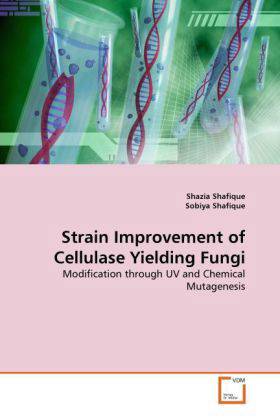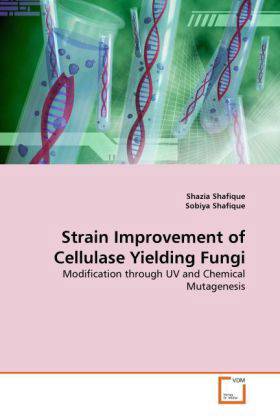
- Afhalen na 1 uur in een winkel met voorraad
- Gratis thuislevering in België vanaf € 30
- Ruim aanbod met 7 miljoen producten
- Afhalen na 1 uur in een winkel met voorraad
- Gratis thuislevering in België vanaf € 30
- Ruim aanbod met 7 miljoen producten
Zoeken
Strain Improvement of Cellulase Yielding Fungi
Modification through UV and Chemical Mutagenesis
Shazia Shafique, Sobiya Shafique
Paperback | Engels
€ 92,45
+ 184 punten
Omschrijving
Cellulose has attracted considerable interest as a renewable resource since bioconversion products have potential value in food and chemical industries and as an energy source. As million of tons of cellulose squandered annually, fungi can prove a constructive device by producing cellulases in recycling of polymeric carbohydrates, otherwise being locked inside the waste products. Cellulase is a group of enzymes responsible for cellulose degradation. Its application can be seen in animal feed, pharmaceutical, textile and paper and pulp industry. The utilization of fungal biomass for cellulose degradation at industrial scale is increasing all over the world as economically feasible. The present study, therefore, was designed to evaluate the bioactivity of known cellulolytic fungal species to screen and select the best potential candidates. Selected species were subjected to UV and chemical mutagens for prospective evolution of high yielding strains. Further strain conditioning was carried out on economically feasible substrate to evolve commercially viable technology for celluiase enzyme production.
Specificaties
Betrokkenen
- Auteur(s):
- Uitgeverij:
Inhoud
- Aantal bladzijden:
- 184
- Taal:
- Engels
Eigenschappen
- Productcode (EAN):
- 9783639325430
- Verschijningsdatum:
- 18/02/2011
- Uitvoering:
- Paperback
- Afmetingen:
- 152 mm x 229 mm
- Gewicht:
- 277 g

Alleen bij Standaard Boekhandel
+ 184 punten op je klantenkaart van Standaard Boekhandel
Beoordelingen
We publiceren alleen reviews die voldoen aan de voorwaarden voor reviews. Bekijk onze voorwaarden voor reviews.








